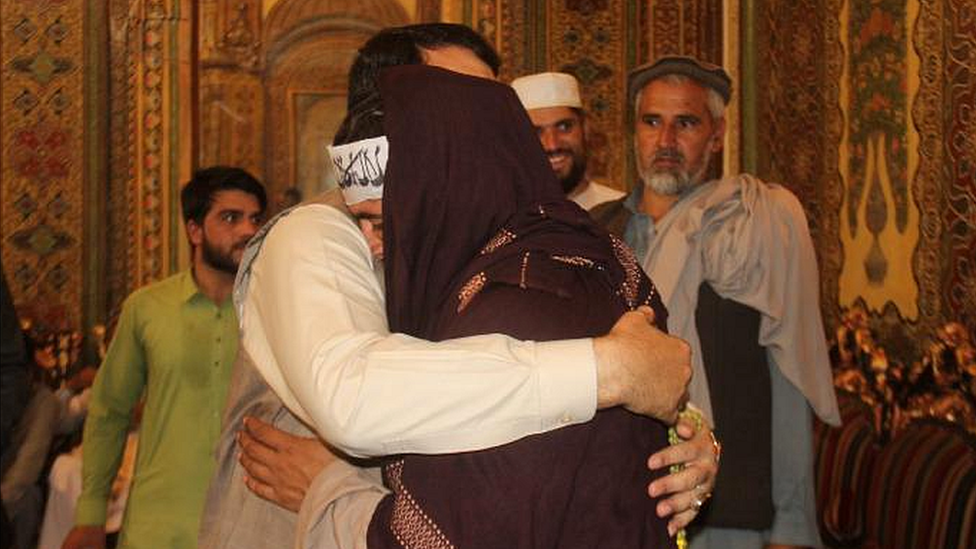Afghan conflict: Taliban to resume attacking local forces after deal with US
- Published
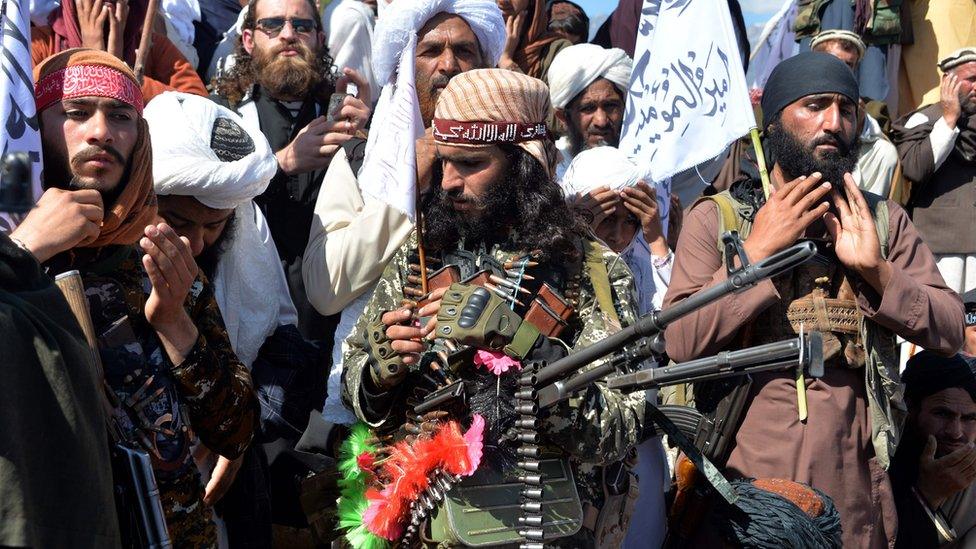
Taliban militants and villagers were pictured celebrating the peace deal on Monday
The Taliban are to resume attacks against government forces, just days after signing a deal with the US aimed at bringing peace to Afghanistan.
The hard-line Islamist group had observed a "reduction in violence" in the week leading up to the agreement.
The deal included a commitment to hold peace talks with the Afghan government.
But the group's spokesman said on Monday the talks would not go ahead if 5,000 Taliban prisoners held by the government were not released.
The release formed part of the agreement signed on Saturday in Qatar with the US.
But on Sunday, Afghanistan's President Ashraf Ghani told reporters his government had agreed to no such release.
"There is no commitment to releasing 5,000 prisoners," Mr Ghani said. "This is the right and the self-will of the people of Afghanistan. It could be included in the agenda of the intra-Afghan talks, but cannot be a prerequisite for talks."
The Taliban have previously refused to negotiate with the Afghan government, so Saturday's deal was just with the US, which invaded Afghanistan weeks after the September 2001 attacks in New York by al-Qaeda, then based in Afghanistan.
The Taliban were ousted from power but became an insurgent force that by 2018 was active in more than two-thirds of the country.
What have the Taliban said?
The Taliban said they would resume fighting Afghan forces, but would not target international troops.
This contradicted Mr Ghani's comments on Sunday. He had said the partial truce was set to continue "with a goal to reach a full ceasefire".
Afghanistan's National Security Adviser, Hamdullah Mohib, says women have an ally in the president
Meanwhile, Taliban spokesman Zabihullah Mujahid told news agency Reuters they would not take part in talks with the government unless the release went ahead.
"We are fully ready for the intra-Afghan talks, but we are waiting for the release of our 5,000 prisoners," he said. "If our 5,000 prisoners - 100 or 200 more or less does not matter - do not get released there will be no intra-Afghan talks."
An estimated 10,000 captured Taliban are being held in Afghanistan.
The BBC's Secunder Kermani says it's not yet clear if the Taliban will now resume fighting - or if this is an attempt to pressurise the government into releasing the detainees.
How has the US reacted?
General Scott Miller, the US forces commander in Afghanistan, said the reduction in violence "was a confidence builder", adding: "We're very serious about our obligations and we expect the Taliban will be serious about their obligations.
"The United States has been very clear about our expectations - the violence must remain low."
Tens of thousands of Afghan soldiers have been killed and injured. This is their story
Saturday's agreement included the withdrawal of US troops and its Nato allies from Afghanistan within 14 months - if the militants hold up the deal.
About 12,000 US troops are still stationed in the country.
US President Donald Trump, who had promised to end the Afghan conflict, said on Saturday that it was "time to bring our people back home".
Mr Trump said 5,000 US troops would leave Afghanistan by May and he would meet Taliban leaders in the near future.
He added that US troops had been killing militants in Afghanistan "by the thousands" and now it was "time for someone else to do that work and it will be the Taliban and it could be surrounding countries".
On Sunday, US Secretary of State Mike Pompeo told CBS news that he hoped negotiations between the Afghan government and the Taliban would begin in the coming days.
- Published1 March 2020
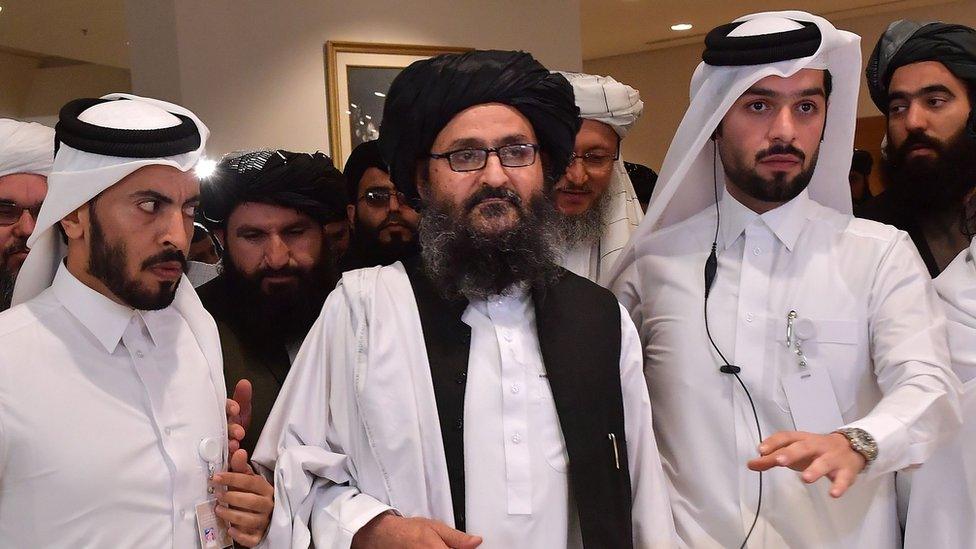
- Published29 February 2020
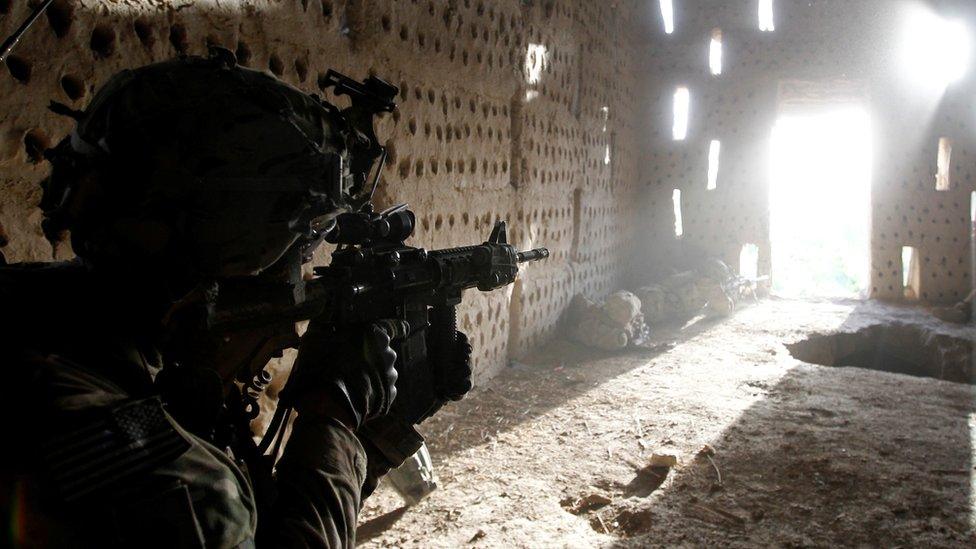
- Published28 February 2020
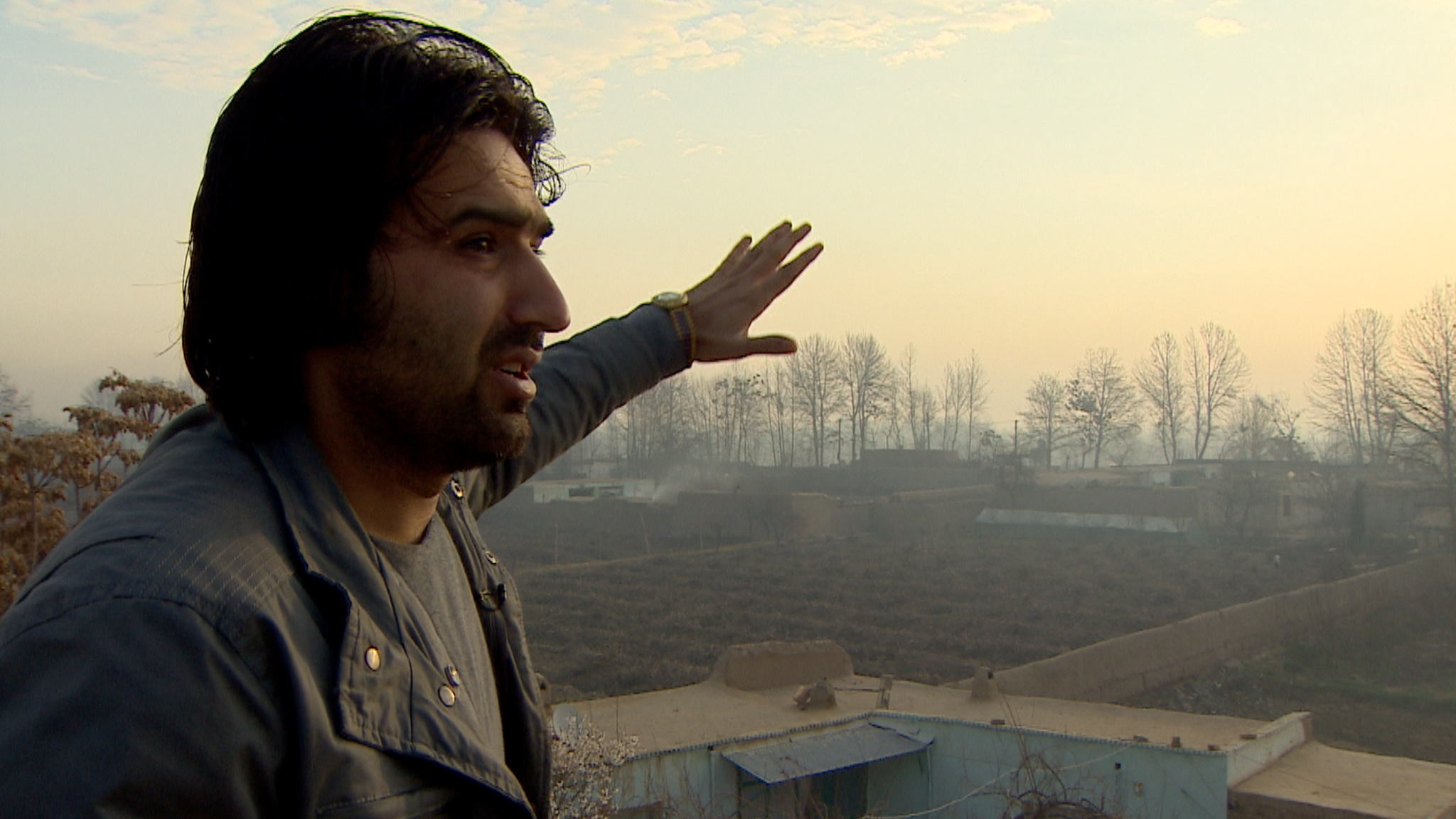
- Published27 February 2020
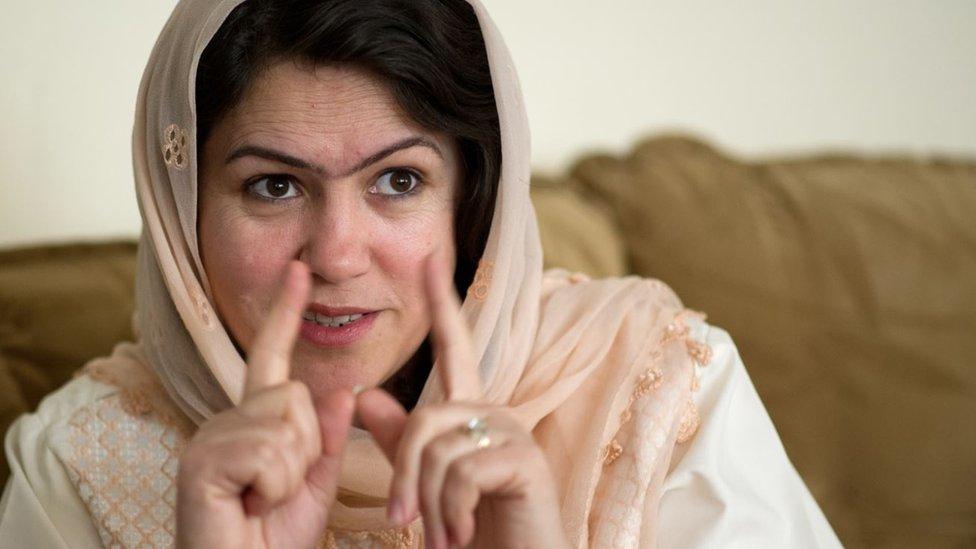
- Published16 September 2019
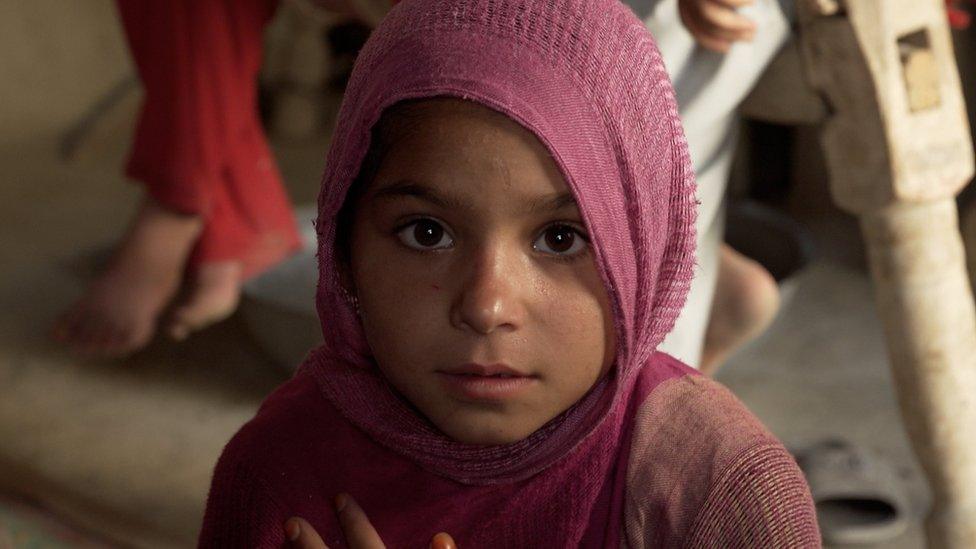
- Published30 July 2019
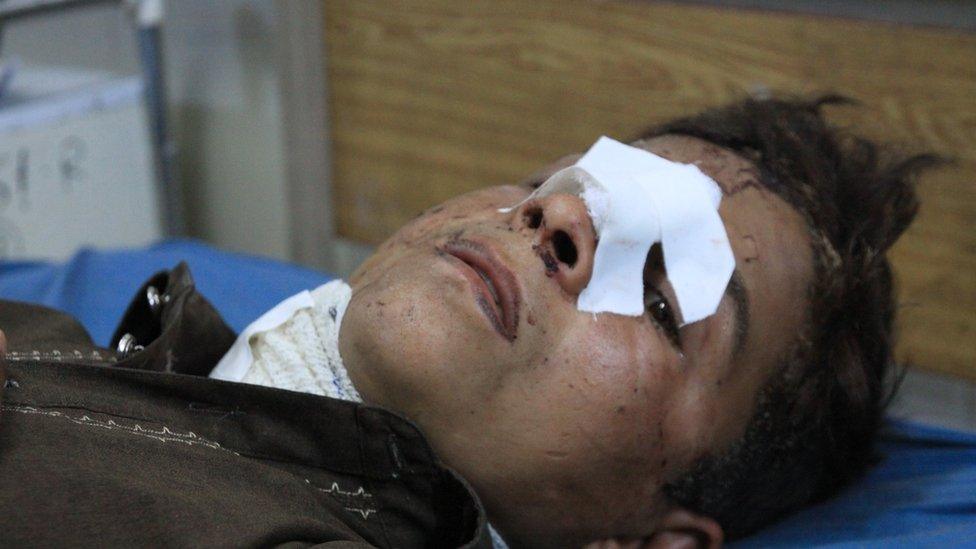
- Published11 March 2019
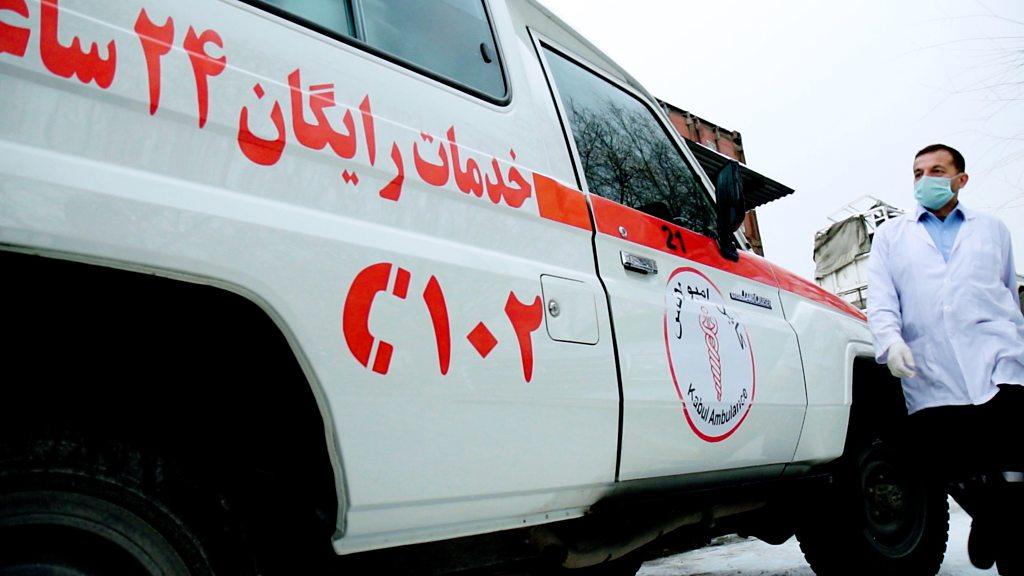
- Published14 September 2018
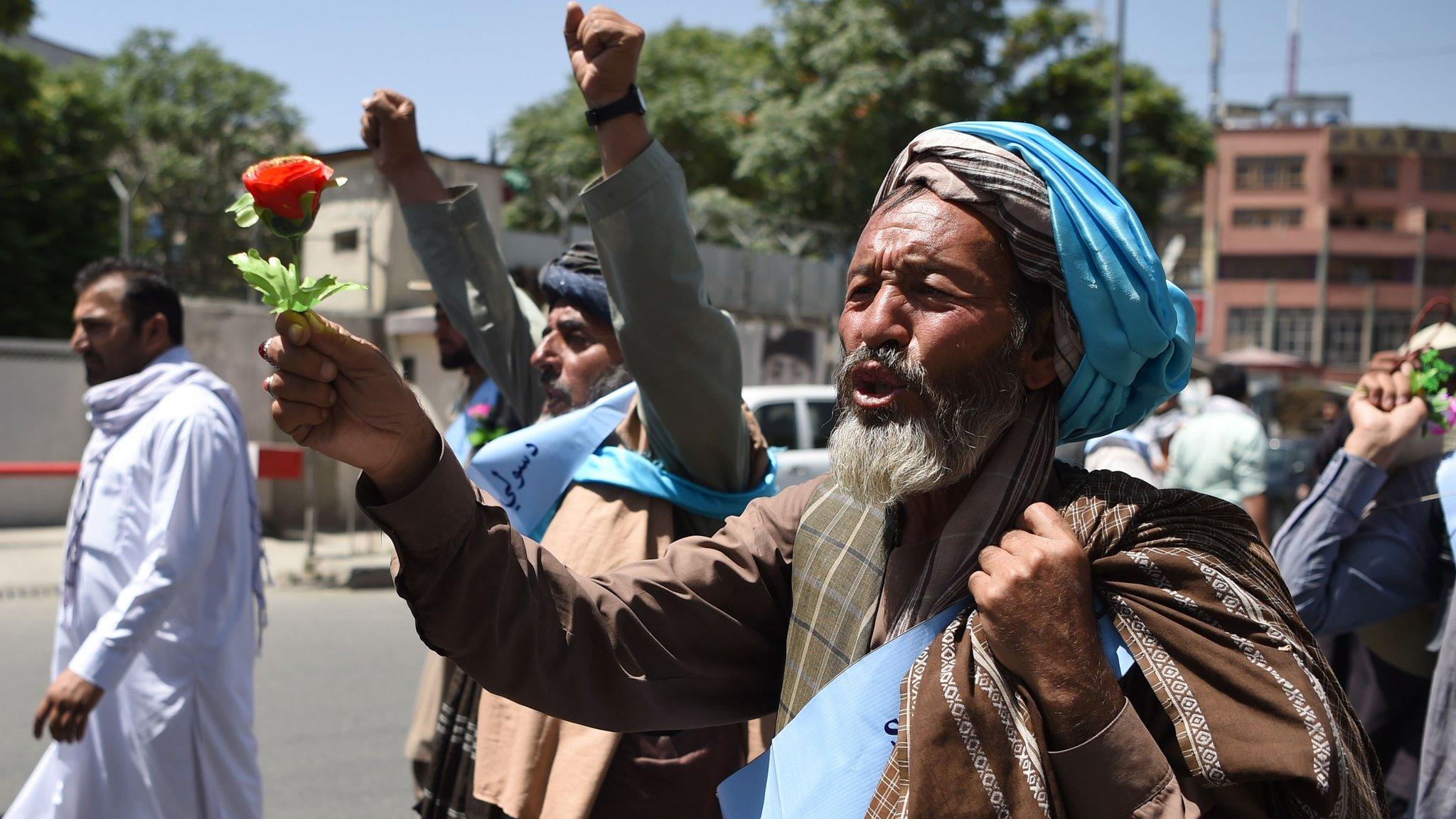
- Published6 July 2019
